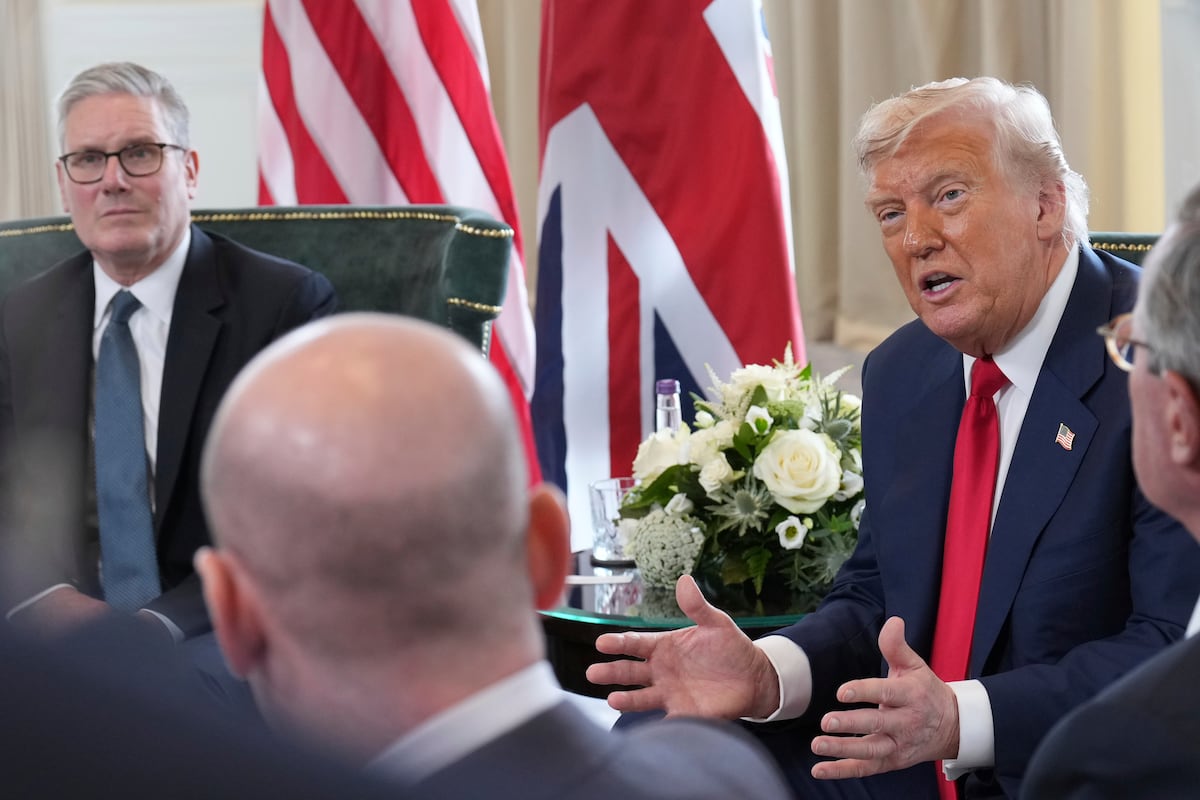President Donald Trump has called on Israeli Prime Minister Benjamin Netanyahu to ensure that food reaches people in Gaza, highlighting a deepening humanitarian crisis. Speaking in Scotland on March 4, 2024, Trump’s comments reflect a shift in his approach as distressing images of malnourished children have heightened concerns about hunger in the region.
Trump emphasized the role of the United States and other nations in providing aid, stating, “I want him to make sure they get the food.” His remarks come at a time when humanitarian conditions are deteriorating significantly in Gaza, following over 21 months of conflict between Israel and Hamas.
International Response to the Humanitarian Crisis
The urgency of Trump’s comments marks a departure from his previously more passive stance. Just last week, he expressed frustration over stalled ceasefire negotiations and described Hamas as likely to be “hunted down.” However, recent reports of starvation-related deaths and the plight of children have compelled a reassessment of this view.
During his speech, Trump noted that while the U.S. is setting up food centers, specifics on their implementation remain unclear. The White House has yet to provide further details on these initiatives. In his remarks, Trump acknowledged that Hamas has been obstructing aid efforts, stating that the group has “stolen food and aid trying to reach people in Gaza.” Despite this, he recognized that Israel bears significant responsibility for the situation, asserting, “Israel has a lot of responsibility,” while also acknowledging the challenges posed by the ongoing hostage crisis involving 20 individuals still held by Hamas.
Global Reactions and Political Implications
In a parallel development, British Prime Minister Keir Starmer, who visited Trump during the same event at his Turnberry golf course, described the situation in Gaza as “desperate.” Starmer reflected the sentiments of many in the UK, saying, “People in Britain are revolted at seeing what they are seeing on their screens.” He reiterated the UK’s support for Palestinian statehood as part of a two-state solution, aligning with France’s recent recognition of a Palestinian state.
Trump dismissed the significance of France’s recognition, stating, “It doesn’t carry any weight,” and refrained from taking a definitive stance on Palestinian statehood during his remarks. As the U.N. General Assembly convenes to discuss a two-state solution, the absence of both Israel and the U.S. from the meeting underscores the complicated diplomatic landscape.
The international community is increasingly vocal about the humanitarian needs in Gaza. The Israeli military has begun implementing limited pauses in combat to facilitate aid distribution and has conducted airdrops of supplies in response to mounting global pressure. These actions, while a step toward addressing the crisis, have not alleviated the urgent calls for more substantial measures.
As the conflict continues, the focus remains on the humanitarian impact, with leaders like Trump and Starmer advocating for immediate assistance to those affected. The unfolding situation in Gaza will likely shape diplomatic relations and influence future negotiations in the region.
